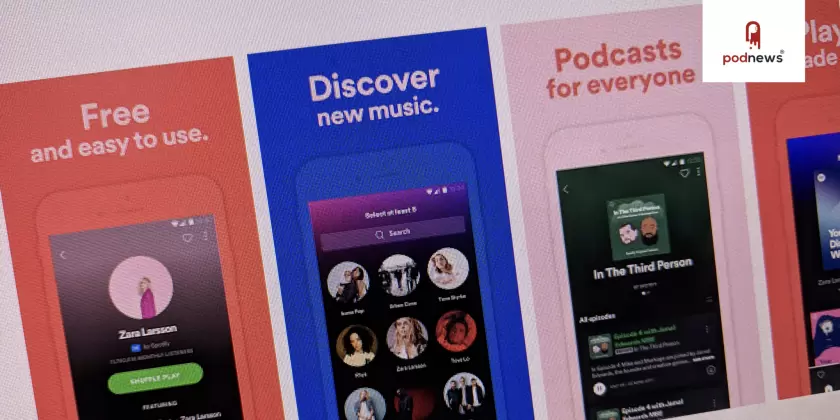
Our take: Spotify in talks to buy Gimlet Media. Good plan?

This article is at least a year old
Spotify is in talks to buy Gimlet Media, it’s been reported. Recode quote the price as being $200m; Nick Quah, in an 'emergency issue' of HotPod, adds “a source familiar with the matter tells me that the specific price is $230 million”. The WSJ’s Ben Mullin, who was (just) second to the story, underlines that “Talks are ongoing and it is still possible that a deal won’t happen”.
Gimlet’s website says their shows are downloaded over twelve million times a month, and lists 25 shows and 109 team members.
For context, podcast content company Stuff Media, which iHeartMedia acquired for $55m in August, had 50 employees, also had 25 shows but according to Podtrac was doing 61 million downloads a month.
Spotify has 200m active users, and has renamed itself as a “music and podcast” player over the past few months. Both Libsyn and Anchor report that Spotify is the #2 most popular podcast consumption platform in the world. (Neither Libsyn or Anchor automatically put your podcast there - and our availability index appears to show that only about 60% of podcasts are on the platform. Here’s how to get yours there, and everywhere else).
Gimlet and Spotify have worked together in the past. Crimetown season 2 was released in an exclusive window on Spotify, and hip-hop documentary Mogul was also available first for Spotify users.
Our take
Gimlet is one of the best-known and most respected independent podcast production companies. It has a mixed revenue stream with advertising, branded podcasts, and bespoke production for individual platforms (it’s currently hiring for a daily news podcast with the Wall Street Journal). It has beautiful studios in Brooklyn NY, and facilities in San Francisco. Its podcasts are of excellent quality and of varied genre. It is, most certainly, a premium prize for any aspiring media company.
Spotify’s keen on podcasting. It can earn money from advertising around them, but also keep users within their app for longer than with music alone. Spotify does, quietly, own some of the music heard on its platform, and is trying to circumvent record companies. It apparently paid $1m to Amy Schumer for a podcast series (though Courtney Holt, Spotify’s Head of Studios, indicated to me that we shouldn’t always believe what we read about that figure). It clearly wants to emulate Netflix and own more of the content on its platform.
Yet, unlike Netflix, the open nature of podcasting mean that Spotify already has access to most titles it wants, at no cost. It already knows exact consumption details and demographic data on its users. There seems little benefit for Spotify to own the content.
$230m is a high figure, whether you compare the Stuff Media purchase earlier in the year, or you recall that total US podcast ad revenues were just $314m in 2017. If the goal is to make Gimlet into a podcast industry powerhouse, spending almost 75% of the industry’s total ad revenue to acquire the company seems a trifle extravagant. It values each show at almost $10m.
However, if $230m is to buy a set of much-loved podcasts to put them behind an exclusivity wall and ensure that if ever you want to listen to Reply All again you’ll have to get Spotify, that makes a little more sense.
Both Blumberg and Lieber, the two founders of the company, have consistently said they want the company to be “the HBO of audio”. HBO’s business model is exclusivity - subscribing to a local cable company with access. Perhaps that’s the idea here; and perhaps a good fit for Spotify.
But is it a good idea for podcasting? Only time will tell.
PS
I might not know for certain about the validity of this plan, but I do know two things:
It is not an 'emergency’ - it’s a potential business acquisition, but absolutely no cause for alarm. As far as we can see, this doesn’t threaten any jobs, nor any imminent threat to our industry.
It is not 'proof that podcasting is being taken seriously at last’ - this seems to me a rude and highly denigratory thing to say about our business. Podcasting has been taken seriously for a long, long time by anyone that cares about well-produced audio.


































































































